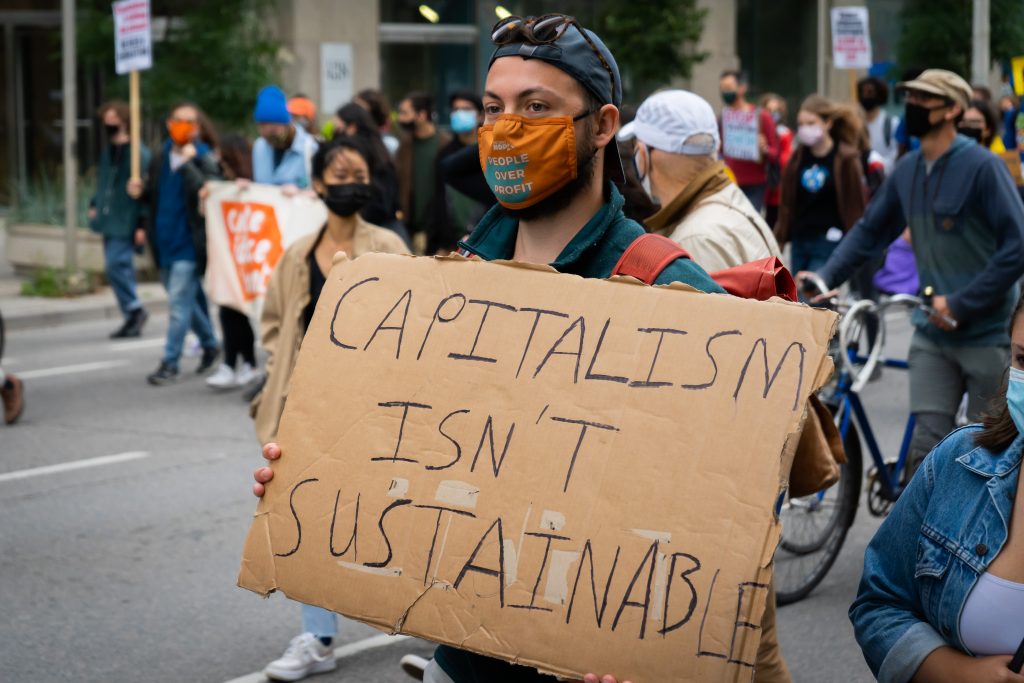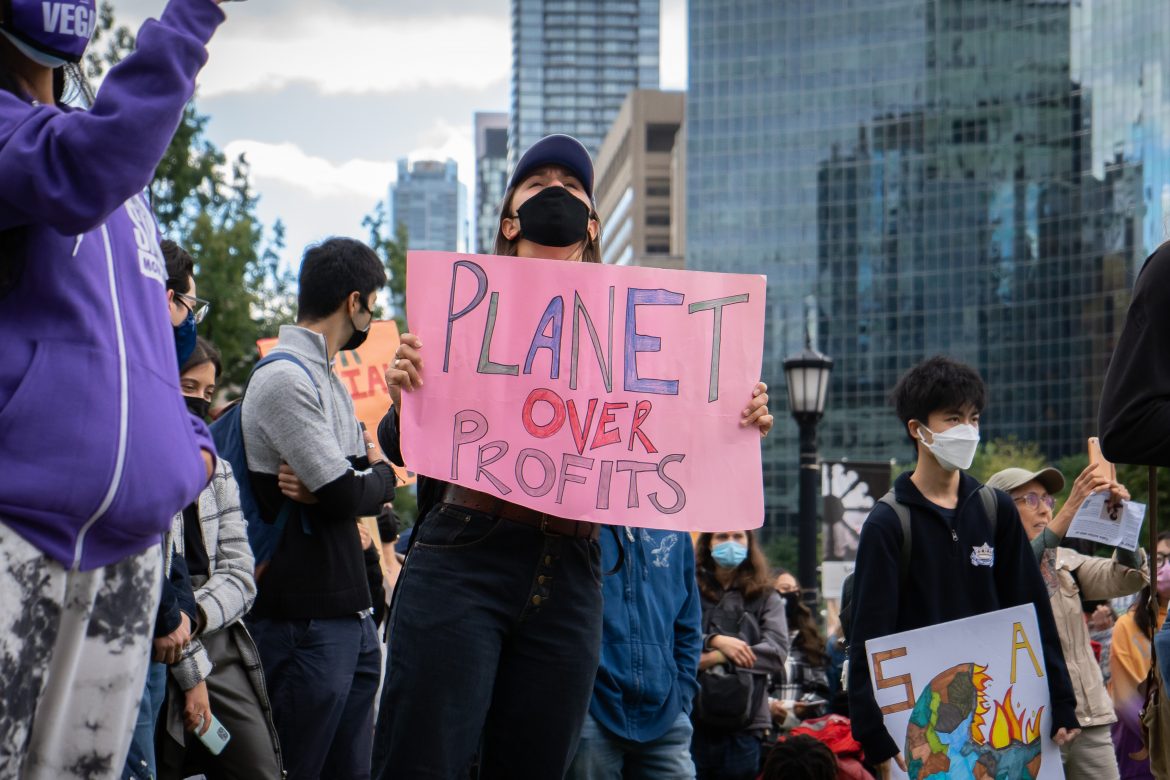Photo Credit: Samantha Hamilton, Photo Editor
We have been given an eight year deadline to avoid irrevocable damage from global warming, yet environmental concerns still remain politicized and often overlooked. It’s time to readjust our views and go green.
Isabelle Buchanan, Editor-in-Chief
A pandemic, lockdowns, fighting for human rights, the ocean catching on fire: the past year and a half has felt like an absurd, extended nightmare. With the craziness of all these events and an ongoing news cycle, we often forget about more persistent problems. However, these issues are just as critical and often require immediate action. This is precisely the case with the environment. This year, a climate clock was placed in Times Square counting down the minutes until the effects of global warming become irreversible.
Eight years. We have eight years to reduce our carbon emissions to near zero. And if we fail? Well, we will have depleted the Earth’s carbon budget. The Earth can currently sustain an average increase of 1.5°C warming per year. However, if we do not succeed in reducing our carbon emissions, this critical threshold will be surpassed. Even if we do succeed, this only rewards us with a two-thirds chance of meeting the critical threshold.
While eight years may seem like quite a ways down the road, the climate issue is imminent. We have continually failed to meet previous environmental goals, pushing it off for future generations to handle. We have reached the point where there is no time left for procrastination; either we start working now, or we reach a point of no return. With the way things have been moving, even if we get started now, we will just barely meet the deadline.
Need a clearer picture painted of what irrevocable damage caused by global warming might look like? We will be seeing an increase in natural disasters, everything from flooding, to earthquakes, to forest fires. These are all disasters which have historically caused devastation, and will continue to do so to unimaginable degrees, at unimaginable rates. Famines will be more persistent; climate refugees will be left stranded; political crises will arise; international conflict will break out over the scarcity of essential natural resources. Armageddon will actualize on Earth.
The description might sound grim, but the consequences are real. The description might sound dramaticized, but the consequences are imminent. We have to realize the environment is not a future problem. The eight years we were given are not an extension for when we have to start considering the problem. The environment is a pressing topic that requires immediate attention.
Global warming has ample scientific backing. While certain experts may have differences of opinion, the validity and existence of global warming is not up for debate. Environmental issues have a universal impact; finding and implementing solutions should be something that we work collectively to accomplish. Yet, we see the exact opposite happening. The environment is a highly politicized subject, dividing both nations and individuals across political lines. It seems ridiculous that someone’s political leaning influences the degree to which, if at all, they believe in global warming. We not only need to readjust our views on when to start acting, but we need to consider why environmental issues have become so politicized and work to depoliticize the topic. It is only once this issue has been separated from politicization that we can start working together, and it is only once we work together that we can actually tackle environmental issues.

The past couple years there has been an increase in investment to find creative solutions to environmental concerns and the development of environmental innovations. Companies are implementing more green initiatives, and individuals are doing what they can to live more sustainably. Currently, 12.3% of energy used is renewable energy, and this number is increasing; however, it is not increasing nearly fast enough to meet the eight year deadline.
We need to stop pushing the responsibility of reducing greenhouse gas emissions onto individuals. Every small action does make a difference, and ideally everyone would live as sustainably as possible. However, individuals are not the ones responsible for the current crisis, nor can their actions alone significantly reduce carbon emissions. Fingers need to stop being pointed to distract from the true perpetrators. For actual results, we need to see greater responsibility taken by corporations and enforced by governments. Policies need to be passed to limit carbon emissions, taxes need to be enforced to incentivize companies to be more environmentally friendly, and corporations need to adopt environmentally sustainable protocols. When governments and corporations start caring and enforcing these policies is when we can start seeing a reduction in greenhouse gas emissions.
While certain nations and corporations have acknowledged the role they must play in the climate crisis, this requires universal collaboration. The actions of one country directly affects the consequences for another; if a few countries refuse to join the fight against global warming, or leave it to other countries to handle, we all experience the consequences. At a certain point, governments need to realize that making small changes now, that entering and following through on environmental agreements with others, is beneficial to them. They would be saving themselves from future devastations, worse problems, and the need for more investment. We must come to terms with the fact that universal issues have universal consequences. Every state is liable, and needs to be accountable for their role in the climate crisis. Every country needs to commit to the fight, and must work collectively to win.
Eight years. That’s all we have. In order to meet our deadline we need to drastically shift our perspectives. Only once we depoliticize global warming, redirect responsibility from individuals to corporations and governments, and approach this universal problem collectively, can we start to make concrete changes to reduce carbon emissions. There might be a lot to overcome, but at least we still have eight years.




